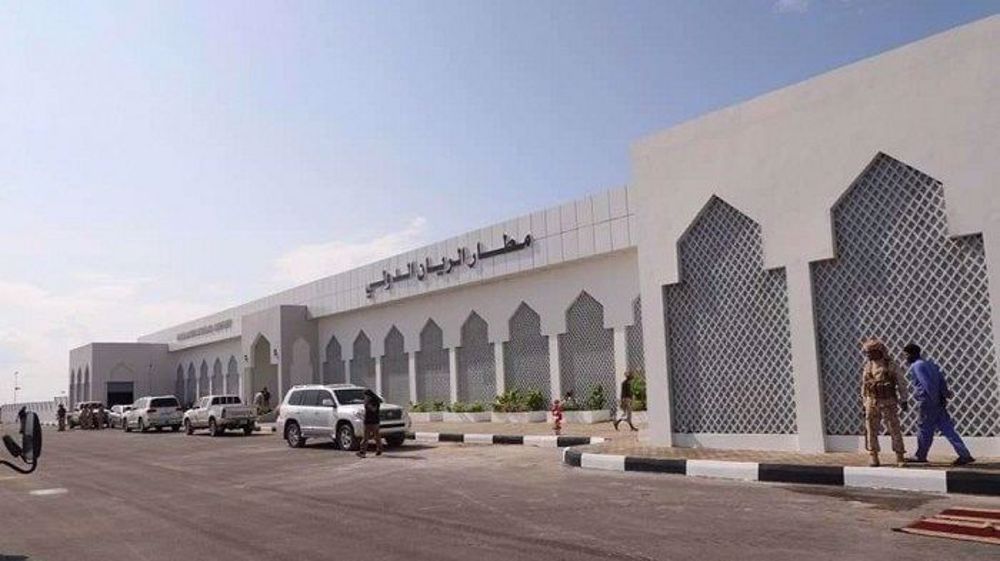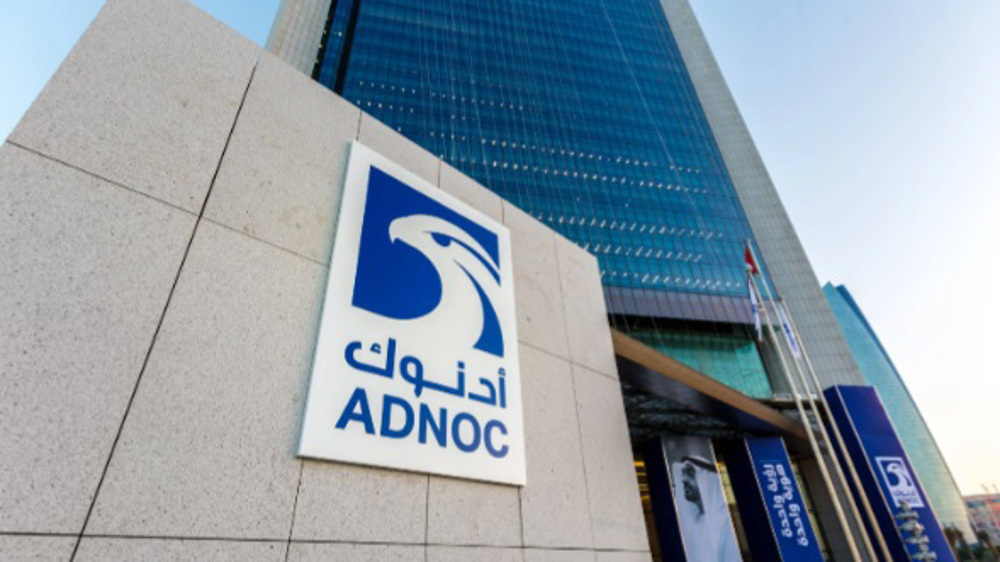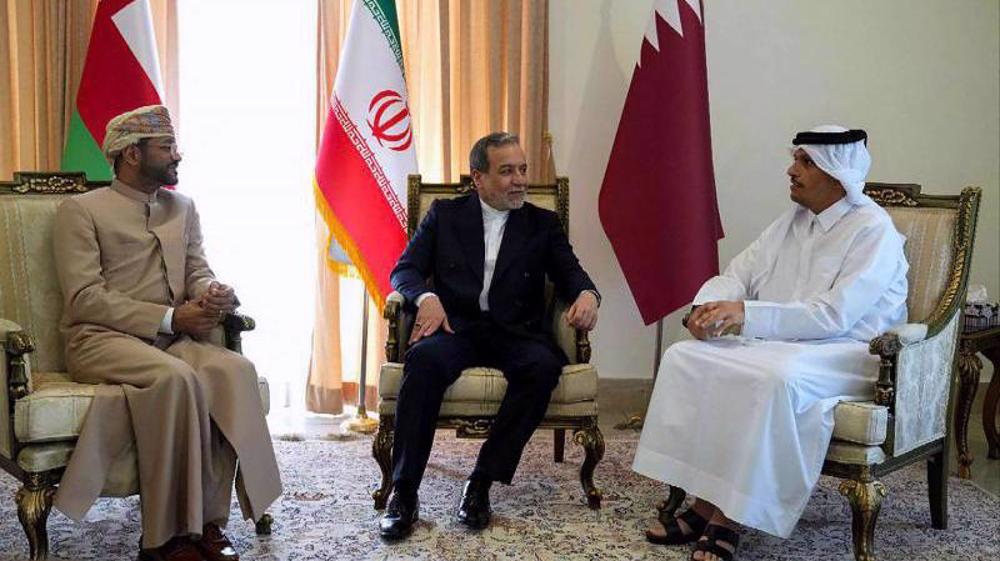Defiant Bahrainis protest normalization, set fire to Israeli flags
Bahrainis have rallied throughout the island kingdom, condemning the ruling regime’s normalization of relations with Israel and setting Israeli flags on fire in defiance of a government ban on protests.
On Saturday, Bahrain's main opposition group, the al-Wefaq National Islamic Society, posted pictures of the rallies that were held in the capital Manama as well as many other places across the country.
Bahrain's normalization of ties with the Israeli regime was announced Friday by US President Donald Trump roughly a month after Washington brokered a deal enabling a similar rapprochement between the United Arab Emirates and the occupying regime.
The US-mediated agreements have been met with uniform condemnation from all Palestinian factions, who call it a "stab in the back" of the Palestinians and sheer betrayal of their cause.
According to reports, Bahrainis rose in protest in the northern villages of Karrana and Abu Saiba, the north-central village Shakhura, the village of Sanabis on the capital’s outskirts, and Sadad Village that lies on the country’s west coast.
They blasted Manama’s intention to open an embassy in the occupied territories, and the reciprocal prospect of an Israeli embassy in Bahrain.
The participants held up Palestinian flags and banners, expressing outrage at the normalization, and set fire to Israeli flags.
'A black day in history of Bahrain'
Former lawmaker Ali al-Aswad, who had resigned in 2011 in response to the government's crackdown on peaceful protesters, called it a "black day in the history of Bahrain."
"You will be reminded by history for your support [of] colonialism and colonization," he said.
Maryam al-Khawaja, daughter of prominent imprisoned human rights activist Abdulhadi al-Khawaja, also said it was Bahrain’s people that mattered, and that the diplomatic maneuver solely reflected the regime’s standpoint.
I see a lot of tweeps in #Bahrain writing they’re ashamed to be Bahraini today. I’ll never be ashamed to be Bahraini, I’m proud of the people who fight injustice locally and have always stood with justice #Palestine. Bahrain is it’s people, the regimes only represent themselves
— Maryam Alkhawaja (@MARYAMALKHAWAJA) September 11, 2020
Security forces fanned throughout the island in light of a standing ban prohibiting demonstrations.
The Persian Gulf nation has been facing a sweeping crackdown since 2011, when people began to rise en masse against the ruling Al Khalifah family’s discriminatory policies against and suppression of the majority Shia population.
Dozens have been killed in the state-authorized clampdown, and hundreds more arrested.
'Normalization against will of nations'
Bahrain's most prominent Shia cleric Ayatollah Sheikh Isa Qassim, meanwhile, warned the Arab rulers, who had either undertaken the normalization or intended to do so, that the decision was both religiously forbidden and against the will of their respective nations.
“This move is in line with the United States and Israel’s will and causes much damage to the [international] Muslim Ummah (Nation) and the ongoing battle against Tel Aviv and Washington,” he said.
A statement issued by Bahrain’s opposition al-Wefaq Islamic Society also quoted the cleric as calling on the people of the region to resist, while rejecting any normalization deal between Arab countries and Israel.
A group of Bahraini political and civil society associations, including the Bahrain Bar Association, on Sunday voiced their opposition to the deal in a joint statement.
"What results from normalization will not enjoy popular backing, in line with what generations of Bahrainis have been brought up on in terms of adherence to the Palestinian cause,” the statement said.
‘Satanic goals’
The Bahrain Mirror news and opinion website also carried a statement by Al-Wefaq’s Deputy Secretary-General Sheikh Hussein al-Daihi on the occasion of the normalization, in which he similarly rejected allegations that Manama’s decision represented the will of the entire Bahraini nation.
"We say to the dear Palestinian people that the sons of Bahrain can't be a tool in executing the normalization crime and its project,” he said, adding, “If it wasn't for fierce repression, you would have seen all Bahraini squares filled with Palestine flags."
The trend of normalization in the region confirms that the regimes taking the decision “pose a threat” to their countries and peoples by implementing disruptive agendas that undermine the interests of the international Arab and Muslim community, the official said.
“Stop manipulating the minds of Arab and Islamic people and dragging them into imaginary battles to achieve satanic goals," al-Daihi urged.
‘The Voice of Hind Rajab’ receives Oscar nomination
VIDEO | Foreign-backed terrorism in Iran
US-backed riots suffered 'humiliating' defeat in Iran: Yemeni leader
Pezeshkian: ‘Unholy rage’ fueled by Iran’s enemies after June defeat
Iran condemns Israeli demolition of UNRWA headquarters in occupied al-Quds
Denmark reasserts Greenland sovereignty as Trump claims ‘total access’
Iran’s political legitimacy comes from ballots and popular will, not foreign powers
VIDEO | Press TV's news headlines














 This makes it easy to access the Press TV website
This makes it easy to access the Press TV website